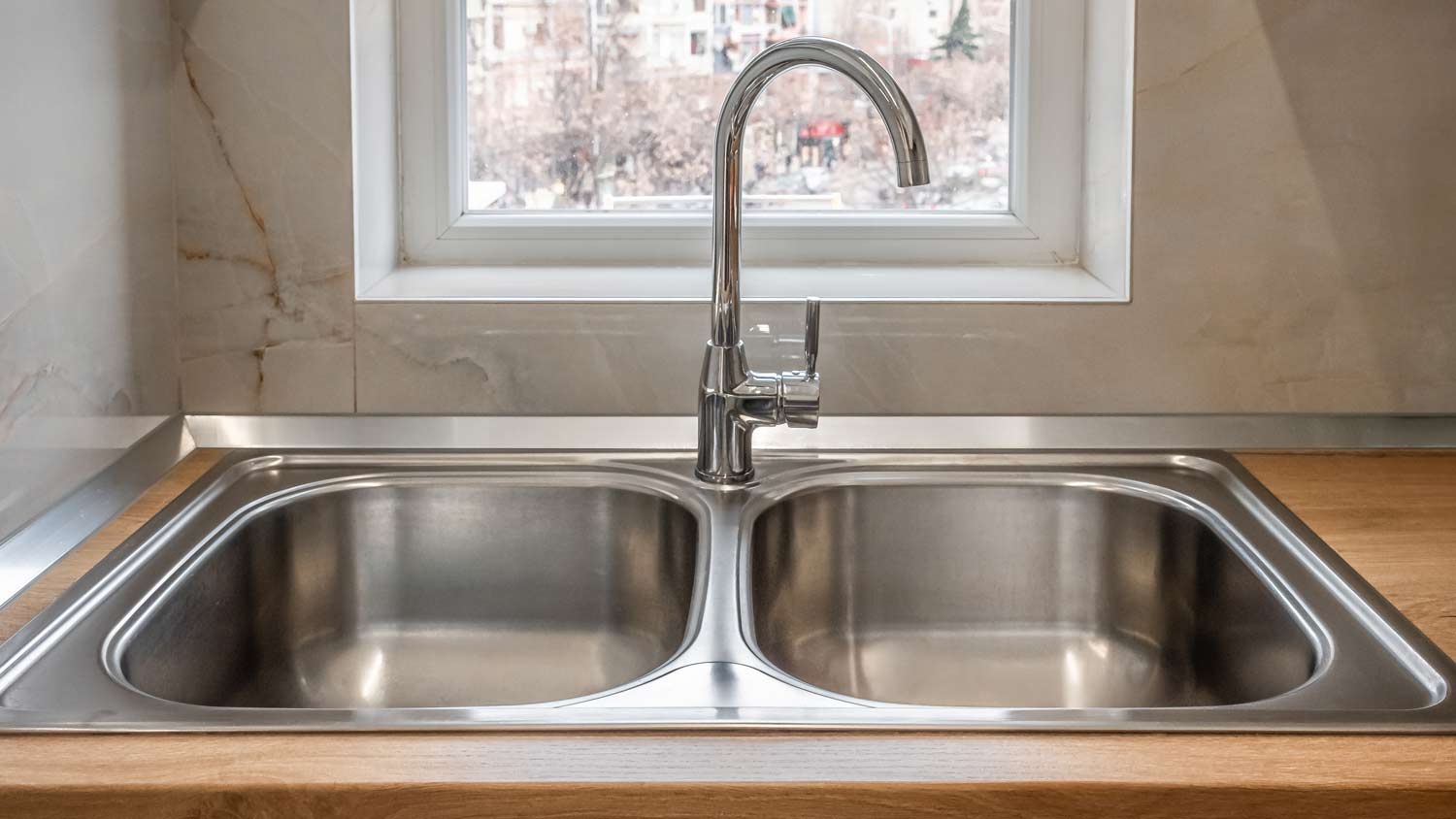How to Remove Rust From a Washing Machine in 5 Easy Steps
A rusty drum is no place to wash your clothes


- Spray bottle
- Rags
- Goggles
- Paintbrush (optional)
- Lemon juice or vinegar
- 120- to 150-grit sandpaper
- Steel primer (optional)
- Steel paint (optional)
Rust in the washing machine is seriously annoying. You just finished washing all the clothes to find confusing orange stains on them, giving you another chore of removing rust stains from clothes. A little investigation shows rust spots in the washing machine. Here’s how to handle the problem in just a few hours.
5 Steps to Getting a Rust-Free Washing Machine

Let It Soak
Without clothes in the machine, run a wash cycle or two on the hottest setting, with 2 cups of lemon juice or vinegar. The acid in both lemon juice and vinegar can break down the iron oxide that makes rust.
"Vinegar is an environmentally friendly, efficient, and inexpensive cleaner," says Asya Biddle, Angi Expert Review Board member and manager of The Dust Busters janitorial company in Williamsport, PA. "However, due to vinegar's acidic nature, it’s best when used in a diluted solution so it doesn’t exhibit corrosive properties."
Let the machine fill with hot water, then add your vinegar or lemon juice. If possible, let the solution sit for an hour before finishing the wash cycle.
Take Inventory of the Rust
Check the inside of the washing machine for rust, which will be red, orange, or brown and could be flakey or bubbled. If the wash cycle and acid didn't break up the rust and there’s a small-enough patch or a couple of small patches, you might be able to save your appliance. Move on to Step 3.
If it looks like multiple rust spots have spread or there’s more rust than clear steel, you might not be able to salvage your washer. Call a top-rated local appliance repair pro to see if they can replace the washing machine tub. Depending on the damage, you may need a new machine entirely.
Treat the Rust Spots
Treating and removing rust spots will help prevent further damage to your machine and clothes. In a spray bottle, mix a solution of 1 part water and 1 part vinegar and spray it on the rust. Let it sit for about 5 minutes, then wipe it off with your rag.
You can also try a rust-dissolving spray on stubborn spots, but never mix this type of cleaner with the vinegar or lemon juice.
Sand It Down
Use your sandpaper to remove whatever’s left of the rusty section and smooth it down. Take safety precautions when sanding metal, such as ensuring your sandpaper is fine-grit and wearing eye protection to protect yourself.
Another option is rubbing the area with aluminum foil and baking soda. Mix 1 part water with 1 part baking soda in a bowl, and rub the mixture onto rust spots with crumpled-up aluminum foil. If that still doesn’t clear the problem, it might be time to replace the washing machine.
Clean Rust Off the Outside of the Machine
If there's rust inside your clothes washer, there's a good chance it's rusty on the outside, too. Use the same rust-removal techniques detailed in the previous steps to remove it. Then, you can use a rust-proof metal primer and metal paint to give the machine a fresh look.
What Causes Rust in Washing Machines?
Rust is corroded steel, and steel corrodes when iron is exposed to moisture and oxygen. Most washing machines have a protective layer over the steel drum, but bleach is a corrosive material that can break down metal.
Help prevent your machine from rusting by limiting the use of bleach and wiping the washer dry after running a load of laundry. This will also help prevent a smelly washing machine.
Another common cause of rust is that the laundry water is from rusted pipes rather than rust in the machine itself. A licensed local plumber can check your pipes and offer some solutions if this is the case.



















